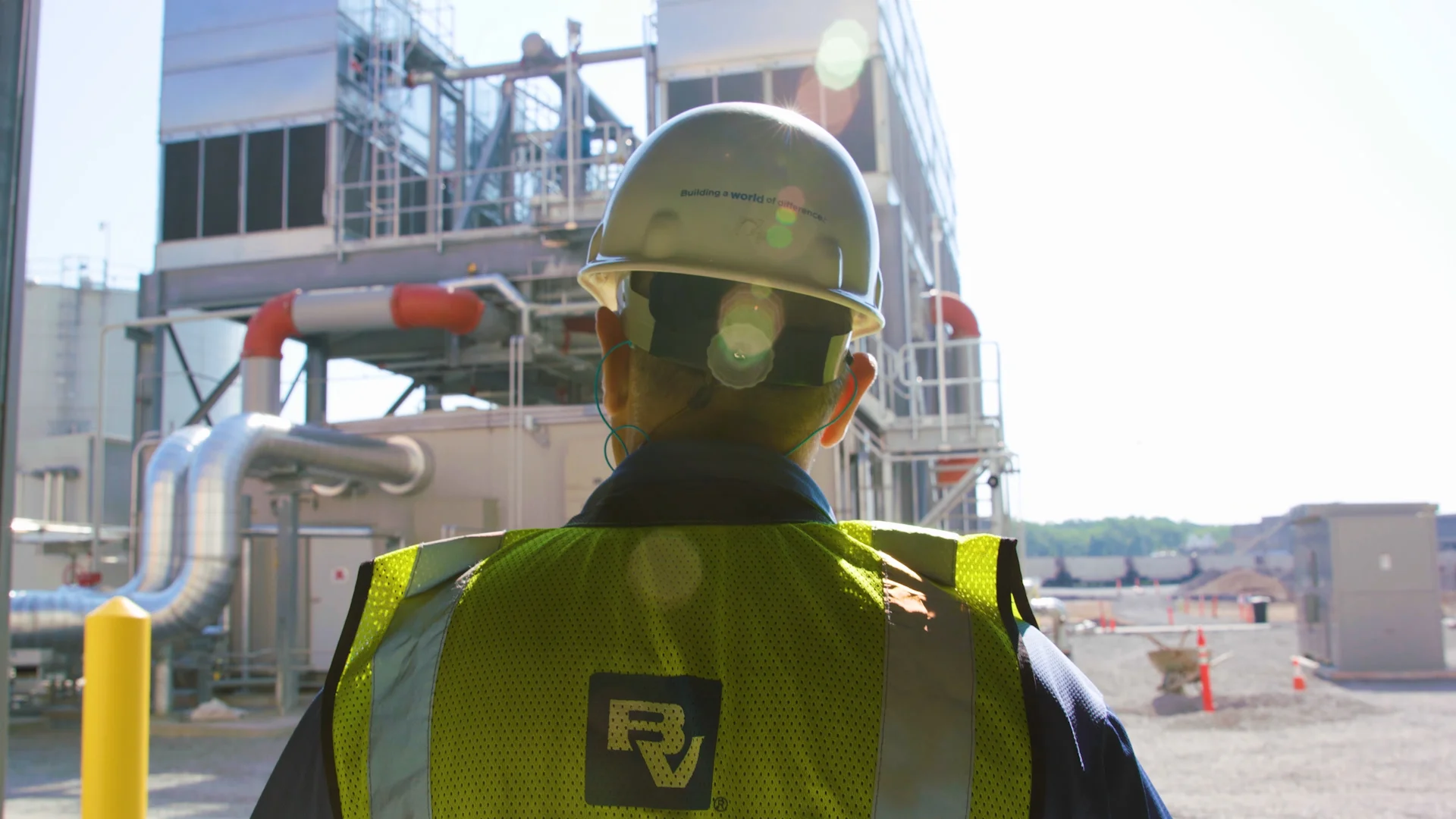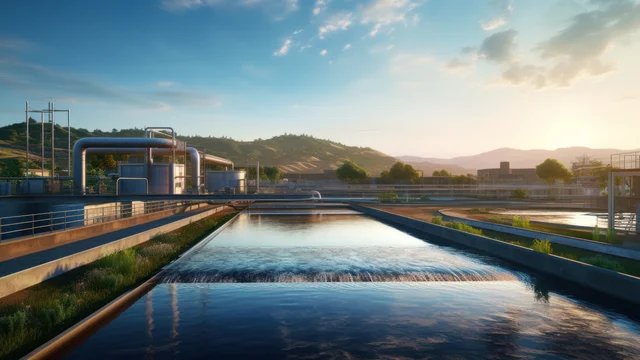
Navigating the U.S. DOE’s Hydrogen Hub Funding Program: Answering Key Questions for Energy Stakeholders

How Innovative Energy Stakeholders Can Make the Most of Federal Funding for Hydrogen
As the clean energy transition gains momentum, hydrogen continues to be viewed favorably as a versatile tool for decarbonization and achieving net-zero emissions by 2050. Forward-thinking energy stakeholders that want to diversify their clean energy portfolio are exploring opportunities in the U.S. Department of Energy (DOE) Regional Clean Hydrogen Hubs program.
With $7B in funding available, this program offers utilities the chance to partner with industry-leading engineering, procurement, and construction (EPC) firms to shape the future of clean hydrogen. Black & Veatch has supported funding for and deployment of some of the most complex process facilities in the world, including one of the world’s most prominent hydrogen production and energy storage facilities. This experience gives us a unique perspective when it comes to funding and execution of these projects. Here are some answers to common questions from across many segments of the energy industry regarding the DOE’s hydrogen funding and how they can maximize its benefits:
What is the DOE Regional Clean Hydrogen Hubs program, and how does it work?
The DOE Regional Clean Hydrogen Hubs program, also known as the H2Hubs Initiative, is aimed at accelerating clean hydrogen production, storage, transportation, and usage across the U.S. It’s designed to establish regional hydrogen hubs where producers, consumers, and infrastructure collaborate to create viable hydrogen ecosystems. By focusing on regions with both production capacity and demand, the hubs will decarbonize industries such as power generation and mobility. The funding is part of the DOE’s broader effort to decarbonize “tough-to-abate” industries and stimulate job creation, energy security, equity and economic growth.
What are the eligibility criteria for the DOE Regional Clean Hydrogen Hubs program?
Eligibility for the program centers around collaborative partnerships that include hydrogen producers, utilities, infrastructure developers, end-users, and community stakeholders. Projects must demonstrate their ability to advance hydrogen as a low-carbon energy solution. Key criteria include the alignment of the project with the DOE’s goal of reducing carbon intensity, potential for scale-up, regional collaboration, and community engagement. Projects are also expected to deliver local economic benefits, especially to underserved communities. Black & Veatch has played an integral role in developing these types of partnerships, having worked on multiple successful hub proposals.
Which types of projects are eligible for funding under the DOE Regional Clean Hydrogen Hubs program?
The program supports projects across the full hydrogen value chain. Eligible projects include hydrogen production (such as green hydrogen from renewable energy or blue hydrogen from natural gas with carbon capture), storage, distribution, and end-use applications.
The program has three focus pillars:
Additionality – new clean energy
Regionality – produced in the region it serves
Temporal Matching – produced during the same time the energy is being utilized
Current Hydrogen hub funding projects are touted to support power-intensive industries across the regions in which they will be built, including the automotive industry, heavy transportation, agriculture (including fertilizer production), power generation, heavy-duty transportation, and even sustainable aviation fuels. Additionally, utilities exploring pilot projects that require Front-End Engineering Design (FEED) studies, are well-positioned to benefit from the program. Black & Veatch’s extensive experience in these sectors positions us as a strong partner for utilities seeking funding for similar projects.
How much funding is available under the DOE Regional Clean Hydrogen Hubs program and what is the funding process?
The program offers up to $8 billion in total funding, with $7 billion allocated to establish six to ten regional hydrogen hubs. Funding is awarded through competitive applications, where proposals are evaluated based on technical feasibility, regional collaboration, and their potential to create a robust hydrogen economy. Private sector investments are expected to supplement federal funding, with over $40 billion anticipated from industry. These partnerships ensure that utilities and other stakeholders benefit from Black & Veatch’s experience in navigating both public and private funding mechanisms.
How does DOE Regional Clean Hydrogen Hubs program impact the overall hydrogen production landscape in the U.S.?
The program is set to transform the U.S. hydrogen production landscape by creating large-scale, economically viable hydrogen ecosystems. By connecting hydrogen producers with consumers through regional hubs, the program can drive down production costs, potentially allowing hydrogen to be competitive with other energy sources. The hubs will also play a significant role in decarbonizing sectors that are difficult to electrify, such as steel production and heavy transportation.
What are the main challenges associated with large-scale hydrogen projects?
Large-scale hydrogen projects face several challenges, including cost/benefit risks, secure, long-term demand, regulatory hurdles, and the complexity of hydrogen infrastructure with non-continuous renewable power. While the DOE is focused on scaling supply, additional incentives may be needed to stimulate demand. Another challenge is the disparity between green and blue hydrogen production, particularly regarding carbon intensity and cost-effectiveness. Labor constraints, and interconnection to the electrical grid also pose significant obstacles. The key to de-risking investment in a complex hydrogen facility starts early & centers on sound engineering and estimating while in the FEED and pre-FEED stages of the project. This not only ensures a constructible design, but it also drives reliable cost estimating to mitigate future financial risk.
What are some complexities and opportunities associated with developing hydrogen infrastructure across the US?
The hydrogen economy offers tremendous opportunities, from decarbonizing heavy industries to creating new markets for hydrogen-powered technologies. However, the transition to hydrogen involves navigating a complex web of regulations, technology adoption curves, and infrastructure buildouts. The DOE’s focus on community engagement also adds a layer of complexity as well as beneficial economic stimulus opportunity, as projects must demonstrate benefits for local populations, particularly underprivileged communities. Additionally, early-stage collaboration and phased work approaches help mitigate risk and maximize project success. Black & Veatch’s experience in community engagement and benefit planning ensures that projects not only meet DOE requirements but also drive benefits for the communities in which they work.
How does Black & Veatch support utilities in navigating the Hydrogen Hub Funding process?
Black & Veatch provides utilities with experienced planning, design, and construction to support clients as they navigate the complex DOE process. Our deep experience developing sustainable process projects and programs allows our clients to understand their unique eligibility criteria, streamline proposal development, align community engagement plans with DOE expectations, and ensure projects meet technical and regulatory requirements so they can secure funding streams and maximize investment returns. This helps stakeholders position their projects for long-term success in the hydrogen market.
What role does Black & Veatch play in advancing community engagement within hydrogen projects?
Community engagement is a core focus of the DOE’s Hydrogen Hub initiative, and Black & Veatch plays a pivotal role in ensuring hydrogen projects deliver tangible benefits to local communities. Black & Veatch develops comprehensive Community Benefits Plans that emphasize job creation, especially for underprivileged populations, and prioritize regional economic growth. By addressing both technical execution and community needs, Black & Veatch helps utilities meet DOE requirements while also strengthening our role as community leaders in the clean energy transition.
Hydrogen Hubs Around the U.S.
The U.S. is rapidly advancing its clean hydrogen infrastructure, with several regional hubs leading the way. The Mid Atlantic Clean H2 Hub (MACH2) repurposes oil infrastructure and uses renewable and nuclear energy. The Midwest Hydrogen Hub (MachH2) focuses on renewable energy, natural gas, and nuclear power for sectors like steel and transportation. In the Pacific Northwest (PNW H2), renewable energy drives hydrogen production, while ARCH 2 in Appalachia integrates natural gas and carbon capture. The HyVelocity H2 Hub (Gulf Coast) leverages carbon capture and electrolysis, and Heartland H2 advances decarbonization in agriculture. ARCHES H2 in California supports transportation and port operations with renewable hydrogen sources. Black & Veatch is involved in the development of several hubs, representing an important stake in the U.S. hydrogen market.

Navigating the Hydrogen Hub Funding Landscape with Confidence
The DOE’s Hydrogen Hub Funding Program presents a unique opportunity for energy utilities to capitalize on the hydrogen economy’s growth. With billions of dollars in federal funding at stake and the potential for significant private investment, stakeholders that act now can secure their place as leaders in the clean energy transition.
However, navigating this complex landscape requires a partner who has deep experience in not only hydrogen technologies but also more broadly across complex process infrastructure, design, construction, project management, and community engagement - areas where Black & Veatch excels. By partnering with Black & Veatch, our clients can leverage decades of experience to ensure successful project execution, cost certainty, and long-term value for their communities. Learn more about Black & Veatch’s industry-leading hydrogen solutions here.
Contact Us
Looking for a partner in innovation?
Let's Talk


